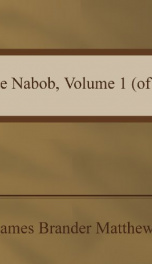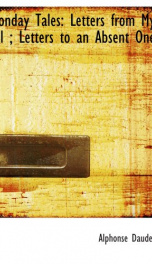The Nabob, Volume 1 (of 2)

Alphonse Daudet is one of the most richly gifted of modern French novelists and one of the most artistic; he is perhaps the most delightful; and he is certainly the most fortunate. In his own country earlier than any of his contemporaries he saw his stories attain to the very wide circulation that brings both celebrity and wealth. Beyond the borders of his own language he swiftly won a popularity both with the broad public and with the professed critics of literature, second only to that of Victor Hugo and still surpassing that of Balzac, who is only of late beginning to receive from us the attention he has so long deserved. Daudet has had the rare luck of pleasing partisans of almost every school; the realists have joyed in his work and so have the romanticists; his writings have found favor in the eyes of the frank impressionists and also at the hands of the severer custodians of academic standards. Mr. Henry James has declared that Daudet is "at the head of his profession" and has called him "an admirable genius." Mr. Robert Louis Stevenson thought Daudet "incomparably" the best of the present French novelists and asserted that "Kings in Exile" comes "very near to being a masterpiece." M. Jules Lemaitre tells us that Daudet "trails all hearts after him,—because he has charm, as indefinable in a work of art as in a woman's face." M. Ferdinand Brunetière, who has scant relish for latter-day methods in literature, admits ungrudgingly that "there are certain corners of the great city and certain aspects of Parisian manners, there are some physiognomies that perhaps no one has been able to render so well as Daudet, with that infinitely subtle and patient art which succeeds in giving even to inanimate things the appearance of life."
Info about the book
Author:
Series:
Unknown
ISBN:
0373312172
Rating:
2.5/5 (5)Your rating:
0/5
Languge:
English
Users who have this book
Users who want this book
What readers are saying
What do you think? Write your own comment on this book!
write a commentif you like The Nabob, Volume 1 (of 2) try:
Other books by this author
Do you want to read a book that interests you? It’s EASY!
Create an account and send a request for reading to other users on the Webpage of the book!







